Stephen Fry is a national treasure whom half the nation can’t stand. He drops his façade of loveability mid-chortle as soon as Brexit is mentioned. He threw a spectacularly pompous Remainer wobbly a few weeks ago and I remember thinking: is he determined to make the people he disdains actively hate him?
If so, it’s working. Last weekend Fry was on John Cleese’s GB News chat show, talking about his former cocaine habit and its connection to his adolescent consumption of sugar. He mentioned the sweets in the shape of cigarettes that were sold at his school tuck shop. As he put it: ‘When I was a teenager, I had this vast empty hole in me that said, “Feed me, I need this sugar, I need it.” When it wasn’t sugar, it became tobacco, so I smoked, and then in my twenties it became cocaine. I just couldn’t sit still. It’s that addictive impulse.’
At which point Fry-haters on social media shrieked like toddlers who’ve overdosed on Sunny Delight. ‘He’s blaming sweets? I ate candy cigarettes as a kid, and I’ve never taken cocaine in my life!’ I must have read 50 variations on that single point – do such haters never scroll through the previous comments? – with the occasional homophobic sneer thrown in. If these people know one thing about cokeheads, practising or retired, it’s that they like to snivel and deflect the blame for their own lifestyle choices. The bien pensant Billy Bunter, who went to public school and Cambridge, thinks it’s all the fault of his tuck shop! You couldn’t make it up.
Actually, many of Fry’s critics were making it up. It’s true that cocaine users tend to snivel; so would anyone who’s just snorted a mixture of talcum powder and toilet scrub sold to them as Peruvian flake. I should really thank the dealer who did that to me: I haven’t touched cocaine since. And addicts are never short of excuses. Ask any of my bosses during my 15 years as a drunk; they were torture for everyone, though I did come away with the only award of my career – Private Eye’s ‘Drunkest Person at The Spectator Party’ in 1991.
But Fry wasn’t making excuses. He has consistently blamed himself for blowing hundreds of thousands of pounds on coke. His self-loathing is painful to behold. What he said was that sugar can be a gateway drug for people like him, and me, who – to quote the writer he once brilliantly portrayed on film – can resist everything except temptation. And he has a point.
I once spent a year talking to addiction specialists for a book called The Fix. I learned that digital technology is devising ever more insidious ways of addicting us to substances and experiences – and I emphasise ‘experiences’ because uncontrollable gambling, democratised by those vile slot machines, has the highest suicide rate of any addiction. Meanwhile the dark art of turning people into online porn addicts is endlessly refined by algorithms.
As drugs go, cocaine doesn’t quite deserve its apocalyptic reputation. In his book High Price, the neuroscientist Dr Carl Hart – who as a teenager sold drugs in Miami – demolishes the theory that cocaine is more addictive than alcohol. He’s scathing about the Reagan-era scare stories of urban blacks enslaved to crack after one sniff. Crack was the same as the yuppie powdered stuff, only much weaker and therefore difficult to get addicted to.
Don’t get me wrong: cocaine can be soul-destroying. The comedown is a tsunami of disappointment, less dirty than a hangover, but equally devastating. That’s because the high is such a thrill. Norman Doidge, a psychiatrist specialising in the structure of the brain, says that, like young lovers, people on cocaine are ‘filled with radiant optimism… flowers and fresh air inspire them, and a slight but thoughtful gesture makes them delight in all mankind’.
All mankind, meanwhile, must listen to them rabbit on. We know how boring young lovers can be. Imagine the same logorrhoea applied to, say, recollections of meetings of Reading borough council’s planning committee in the 1980s. My friends avoided me for months.
Obviously, sugar doesn’t do that to you, but it has one thing in common with cocaine: it’s mind-blowingly moreish. Has there ever been a party where a box of chocolates languishes half-eaten next to the sausage rolls?
We can argue ourselves blue in the face about what we mean by addiction. There are ideologues who think it doesn’t exist – it’s just an excuse for doing bad things. Others preach that it’s a lifelong incurable disease which can be treated in their expensive facilities: poor Matthew Perry spent upwards of $7 million on rehab. I think it’s a tendency to compulsive, self-destructive behaviour that lurks in most of us, and that food manufacturers know precisely how to exploit with artful combinations of sugar and fat. To quote my GP friend Rob: ‘Half my patients wouldn’t need to see me if they could keep their hands out of the bloody biscuit tin.’
Correlation isn’t causation, anecdotes aren’t data, but still: a few years after Fry’s tuck-shop binges, I was creeping down to my parents’ kitchen every night to stuff my face with cake. Today I can keep booze in my flat, because I haven’t felt the urge to touch it since 1994. But chocolate? Earlier this evening I shamefully ordered a modest bar of Cadbury Dairy Milk to be delivered. They screwed up and brought a giant one instead. I was going to eat half tonight and half tomorrow, but then I discovered this vast empty hole inside me that said: ‘Feed me.’ So I did.
Got something to add? Join the discussion and comment below.
Get 10 issues for just $10
Subscribe to The Spectator Australia today for the next 10 magazine issues, plus full online access, for just $10.
You might disagree with half of it, but you’ll enjoy reading all of it. Try your first month for free, then just $2 a week for the remainder of your first year.

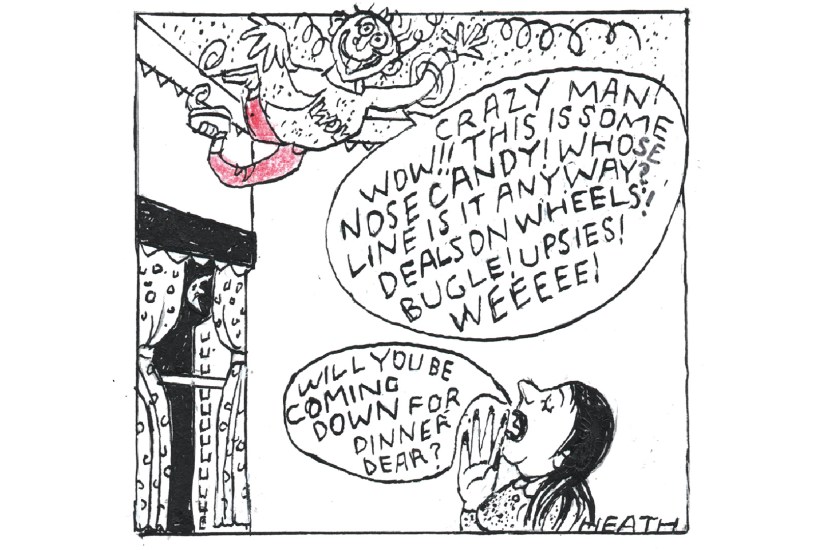
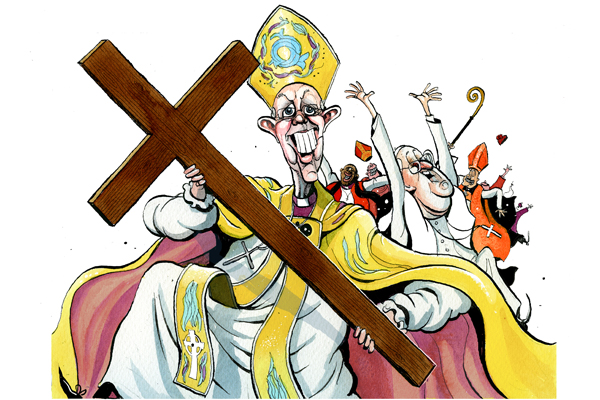
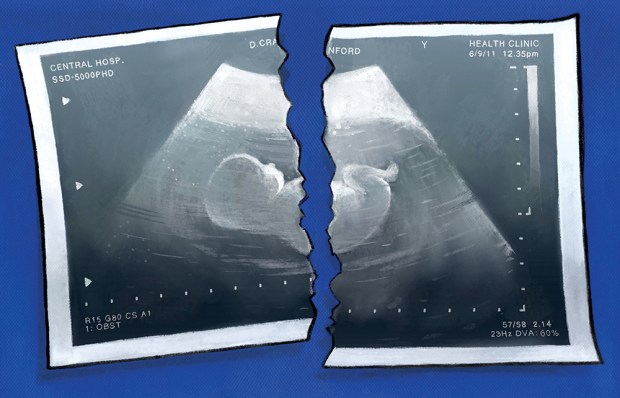
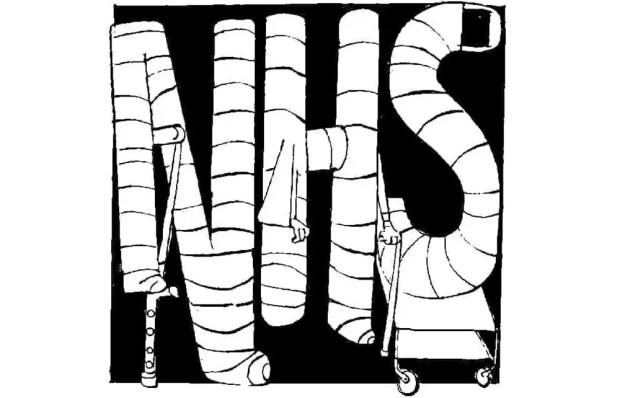
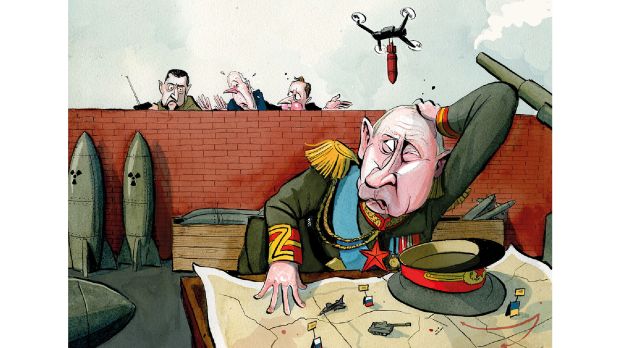
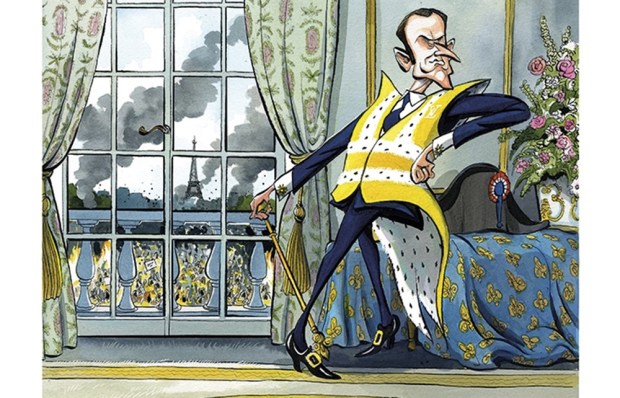






Comments
Don't miss out
Join the conversation with other Spectator Australia readers. Subscribe to leave a comment.
SUBSCRIBEAlready a subscriber? Log in